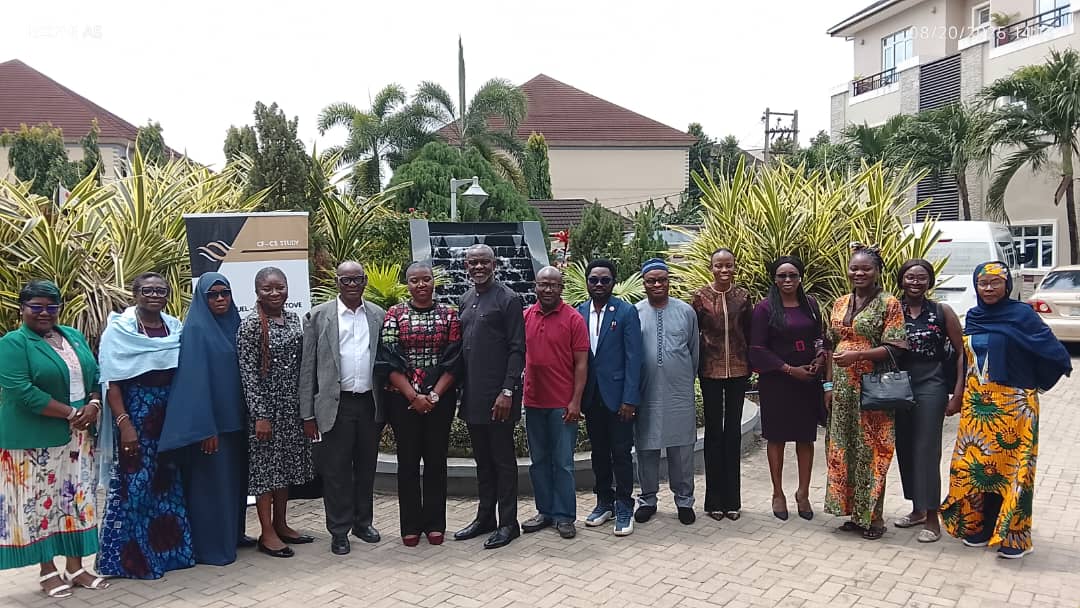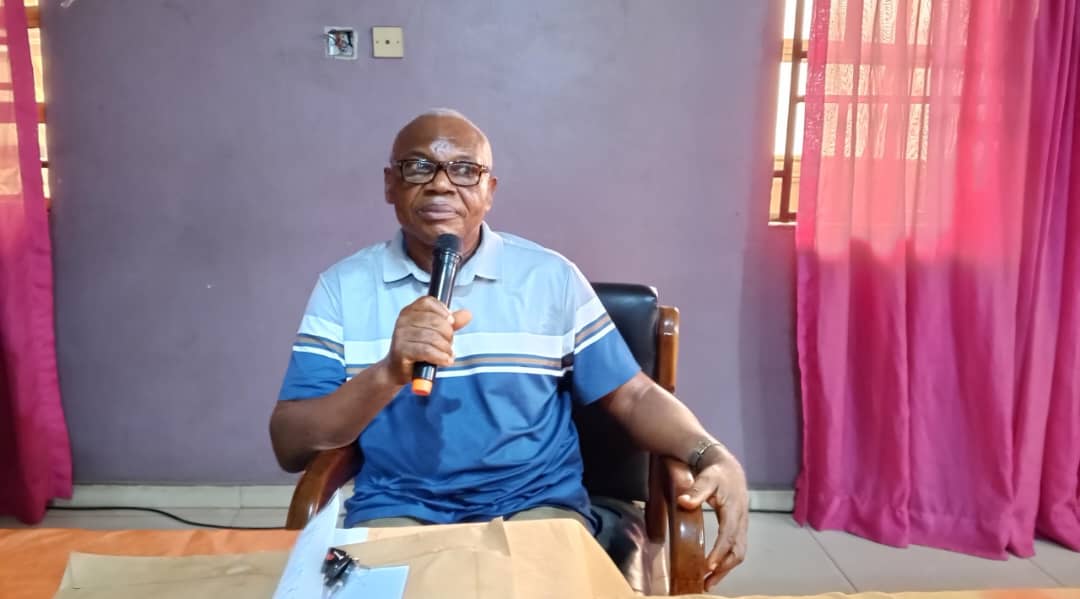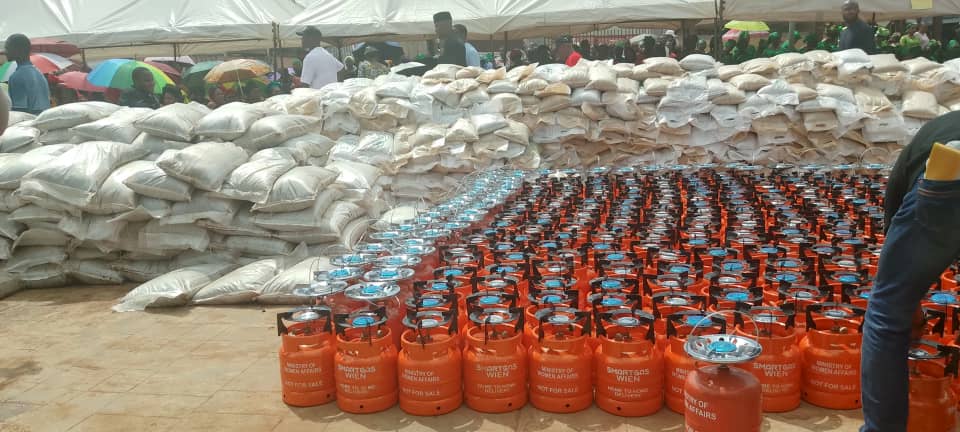Stakeholders Canvass Clean Cooking Solutions to Tackle Household Air Pollution and Hypertension in Lagos

Policymakers, public health experts, researchers, and development partners convened on Wednesday at the Amber Residence, Ikeja GRA, for the Mid-Project High-Level Stakeholders’ Dialogue on the Clean Fuel – Clean Cookstove (CF-CS) Project, a five-year implementation science initiative funded by the U.S. National Institutes of Health (NIH).
The CF-CS Project, launched in 2021, is led by researchers from New York University Grossman School of Medicine, the University of Chicago, and the Lagos State University College of Medicine/Teaching Hospital (LASUCOM/LASUTH).
The project is in partnership with key state agencies including the Lagos State Ministry of Health (LSMOH), the Lagos State Primary Health Care Board (LSPHCB), and the Lagos State Environmental Protection Agency (LASEPA).
Its core mission is to reduce household air pollution, prevent hypertension, and promote the sustained use of improved cooking technologies among low-income households in Lagos.
To date, the project has distributed bioethanol and LPG cookstoves to 640 households across 32 peri-urban communities, while conducting rigorous community mobilization, household air quality monitoring, and hypertension screening.
Key Highlights from the Dialogue
Public Health Imperative:
Principal Investigator Prof. Gbenga Ogedegbe (NYU) highlighted that “household air pollution is one of the leading drivers of hypertension, stroke, and respiratory illness in Nigeria.
“Our data shows the average age of those with hypertension in participating communities is just 41.5 years—underscoring an urgent public health crisis.”
Climate and Gender Dimensions:
In-Country Investigator Prof. Ololade Wright (LASUCOM/LASUTH) emphasised the devastating impact of cooking smoke on women and children, framing the initiative as central to achieving SDG 7 (Affordable and Clean Energy) and addressing “cooking poverty”—a condition that affects 90 million Nigerian households.
Policy & Local Action:
Chairing the event, Dr. Kemi Ogunyemi, Special Adviser to the Governor on Health, reaffirmed the Lagos State Government’s commitment:
“This project demonstrates how global expertise and local dedication can deliver solutions that save lives, protect the environment, and advance equity.”
Recommendations for Scale-Up:
Stakeholders identified affordability and weak supply chains as barriers to adoption and proposed:
Expanding subsidies and local production of clean stoves and fuels
Establishing micro-financing schemes for low-income households
Integrating clean cooking into national health policy
Leveraging public-private partnerships and corporate taxation models to fund access in underserved areas
Training community influencers to drive behavioral change
Panel Insights:
A multi-disciplinary panel, featuring experts from LASEPA, the Lagos PHC Board, and mental health specialists, linked household air pollution to hypertension, cognitive decline, and emotional instability, while also exploring pathways to carbon credits and net-zero cooking.
The Bigger Picture
Globally, 923 million people in Sub-Saharan Africa lack access to clean fuels, making the region the epicenter of “cooking poverty.”
In Nigeria, the reliance on traditional biomass fuels not only fuels a public health crisis but also drives environmental degradation and climate change.
By pioneering a scalable, evidence-based model, the CF-CS Project positions Lagos as a leading example of how clean cooking can deliver triple dividends—better health, environmental sustainability, and economic empowerment.
Stakeholders from the Lagos State One-Health team attended, including the Special Adviser to the Governor on Health (Dr. Kemi Ogunyemi), Permanent Secretaries such as Dr. Ibrahim Mustafa (PHCB), Dr. Abimbola Bowale (HSC, District 4), Dr. Dayo Lajide (District 2), Dr. Abimbola Mabogunje (District 6) and Dr. Abiola Idowu (HEFAMAA),
Also at the event is a representative of the Special Adviser on SDGs (Mr. Ojo), representatives of PS Health, LASHMA, Health Districts 1, 3, and 5, GM LASEPA (Dr. Tunde Ajayi), SSA Health (Dr. Toni Adeyemi), and many others such as Prof. Daniel Sarpong (Yale University School of Medicine, USA), Prof. Jasmin Divers (NYU Langone Health, USA), and Prof. Chinwe Ogedegbe (Vitalflo, New Jersey, USA)
READ ALSO: FG Warns Public Against Fake Social Media Accounts Impersonating Permanent Secretary
DHQ Clarifies: CDS Call for Self-Protection Not a Call to Bear Arms
About the CF-CS Project
The Clean Fuel – Clean Cookstove Project is a NIH-funded, five-year implementation science study (2021–2026) using the EPIS (Exploration, Preparation, Implementation, and Sustainment) model.
The project tests community mobilization strategies to enhance clean cookstove adoption, reduce household air pollution, and prevent hypertension in peri-urban Lagos communities.





